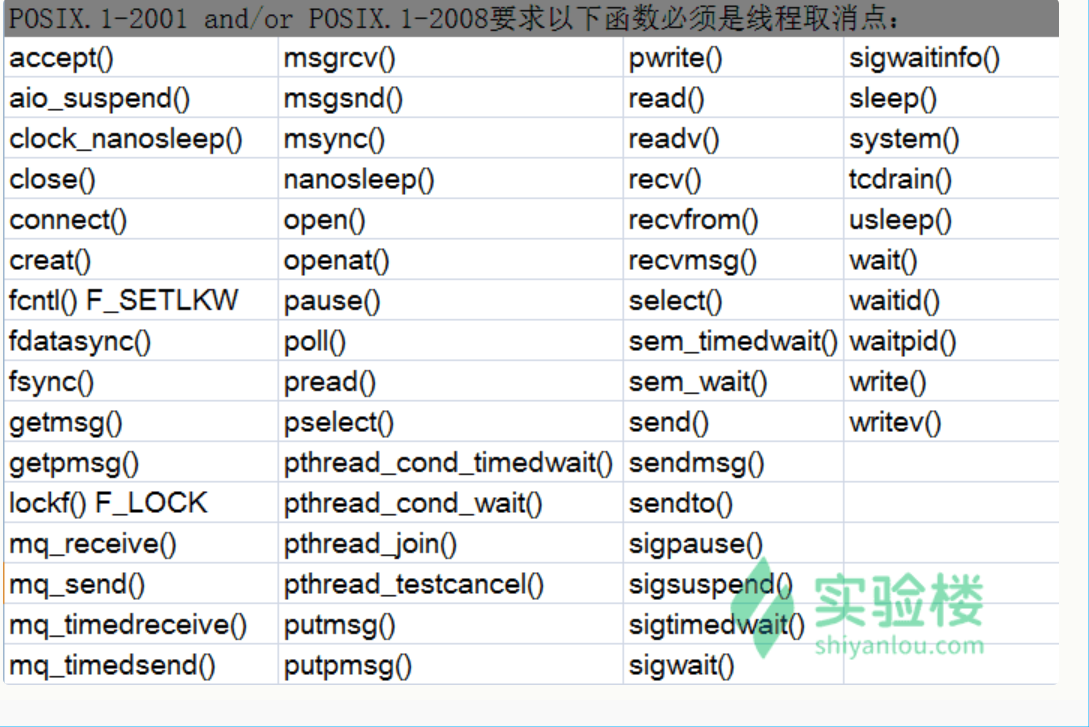一个线程可以对另一个线程提出取消申请,即线程被动终止的一种情况。向某个线程提出取消申请的接口:
#include <pthread.h>
int pthread_cancel(pthread_t thread);
如果一个线程因响应pthread_cancel而终止的,那么连接该线程时,将得到PTHREAD_CANCELED返回值。
向线程提出取消申请,与线程真正发生终止之间,是异步的。即向线程发出取消申请,被申请线程不一定会马上终止,而是等到某个可以发生终止的时机了才终止。可以发生终止的时机,是指当线程调用某些函数时,会响应取消请求,这些函数也称为线程的取消点。 常见的线程取消点有:

实例:
/* *thread_cancel.c */ #include<stdio.h> #include<stdlib.h> #include<pthread.h> #include<errno.h> #define handle_error_en(en, msg) do {errno = en; perror(msg); exit(EXIT_FAILURE) ;} while(0) static void *thread_routine(void *arg) { int j; printf("New thread started "); //这里又可能是一个线程取消点 for (j = 1; ; j++) { printf("Loop %d ", j); //这里也可能是一个线程取消点 sleep(1); //这里也可能是一个线程取消点 } //程序执行流程时无法到达这里 return NULL; } int main() { pthread_t thr; int s; void *res; s = pthread_create(&thr, NULL, thread_routine, NULL); if (0 != s) { handle_error_en(s, "pthread_create"); } sleep(3); s = pthread_cancel(thr); if (0 != s) { handle_error_en(s, "pthread_cancel"); } //等待线程退出 s = pthread_join(thr, &res); if (0 != s) { handle_error_en(s, "pthread_join"); } //判断新线程终止是否是相应取消而终止的 if (res == PTHREAD_CANCELED) { printf("Thread was canceled "); } else { printf("Thread was not canceled (should not happen!) A;"); } return 0; }
运行结果:
